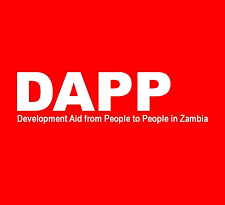EU Blocks Russian Fertilizer Donations to Zimbabwe Amid Ukraine Conflict
In a response to the conflict in Ukraine, the European Union (EU) has blocked the shipment of 23,000 tonnes of fertilizer donated to Zimbabwe by Russia.
This fertilizer was part of a larger donation of 260,000 tonnes of fertilizer from Russia’s agro-chemicals giant, Uralchem-Uralkali, intended for several developing countries.
While Malawi and Kenya have successfully received their allocated portions earlier this year through shipments organized by the United Nations World Food Programme, Zimbabwe and Nigeria were scheduled to receive their share this year.
However, the EU has imposed sanctions on Russia, including restrictions on the export of fertilizers and other goods, with the intention of pressuring Russia to resolve the conflict with Ukraine.
As a result, the consignment for Zimbabwe, along with Nigeria, is presently held at ports in Latvia, Estonia, Belgium, and the Netherlands.
The Ministry of Foreign Affairs of the Russian Federation has expressed frustration over the situation, noting that only two deliveries out of the planned five have been completed.
The EU maintains that its sanctions do not apply to Russian fertilizers and food exports, but Moscow argues that purely humanitarian deliveries of Russian supplies are also being blocked.
Furthermore, Russia claims that its exporters face challenges due to sanctions, including high taxes and fees for storage, trans-shipment, and logistics services. The blockade of Russian produce at EU ports, Russia argues, is illegal.
This development is part of a broader geopolitical issue, where Russian fertilizers played a role in the UN-brokered Black Sea grain deal, which aimed to facilitate the delivery of Ukrainian grain to global markets, with expectations that Western trade barriers on Russian agricultural exports would be lifted. However, this deal collapsed in July, leading to further tensions between Russia and Western nations.
Russia is a significant global fertilizer producer, accounting for a substantial portion of global exports of potash, ammonia, and urea, along with Belarus.
The EU’s move to block fertilizer shipments from Russia highlights the complex and multifaceted nature of international conflicts and their impact on global trade and humanitarian aid.
This story has been adopted from The Herald-Zimbabwe.



